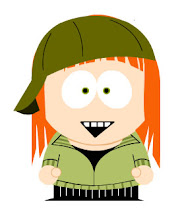 Review #3 for the "Something About Me" reading challenge is on The Giver by Lois Lowry. I would like to say something like, "The Giver is a [insert genre here] novel about blah, blah, blah...," but frankly I don't know what genre it falls into. Is it science fiction? Didn't really seem like it to me, no outer space stuff or anything like that, no weird species or wars among weird species. What qualifies something as science fiction anyway? And what genres exist from which to choose? So a-googling I went, because this is a lack of knowledge that could possibly mark me forever as a moron in the minds of all the literary-types with the book blogs that I've been enjoying. So, in case any of you is hiding under the ignorance rock along with me, here is a list of literary genres. Based on this list, I've narrowed The Giver down to these possibilities: children's literature, social science fiction and philosophical novel. I'm going to go with my own, made up, genre: children's philosophical novel. If I'm way off here, please enlighten me. So, with that out of the way, let's continue.
Review #3 for the "Something About Me" reading challenge is on The Giver by Lois Lowry. I would like to say something like, "The Giver is a [insert genre here] novel about blah, blah, blah...," but frankly I don't know what genre it falls into. Is it science fiction? Didn't really seem like it to me, no outer space stuff or anything like that, no weird species or wars among weird species. What qualifies something as science fiction anyway? And what genres exist from which to choose? So a-googling I went, because this is a lack of knowledge that could possibly mark me forever as a moron in the minds of all the literary-types with the book blogs that I've been enjoying. So, in case any of you is hiding under the ignorance rock along with me, here is a list of literary genres. Based on this list, I've narrowed The Giver down to these possibilities: children's literature, social science fiction and philosophical novel. I'm going to go with my own, made up, genre: children's philosophical novel. If I'm way off here, please enlighten me. So, with that out of the way, let's continue.General comments:
The Giver is a children's philosophical novel (I think) about a boy, Jonas, who is given the assignment of "Receiver of Memory" by the community in which he lives. It is set in the future, exactly how far we don't know, but far enough that society has "evolved" to total control of the individual. There are strict behavior parameters to which everyone must adhere, and yes, Big Brother is watching, or listening, actually. There are no strong emotions and no choices. Even the weather is controlled. Life is colorless, in many ways. But there is one person who is allowed to know and experience the truth, and that is the "Receiver of Memory." This novel is about what happens when the old "Receiver," now called "The Giver," passes on his knowledge to Jonas, the new "Receiver."
If the movie "Pleasantville" and Orwell's novel "1984" were to produce an offspring, this would be it. Granted, it's been over 10 years since I read 1984, and it's been since whenever "Pleasantville" came out that I've seen it, but I just kept thinking of those two as I was reading this book.
I'm not going to do the "What I liked, what I didn't like" thing that I did on my other two reviews, mainly because there wasn't anything that jumped out at me for either of those categories. Overall, I did enjoy the book. It was a quick and pleasant read. I could see it used in a middle school English class; it would be one that the kids would probably really like, and it contains plenty of things to analyze.



